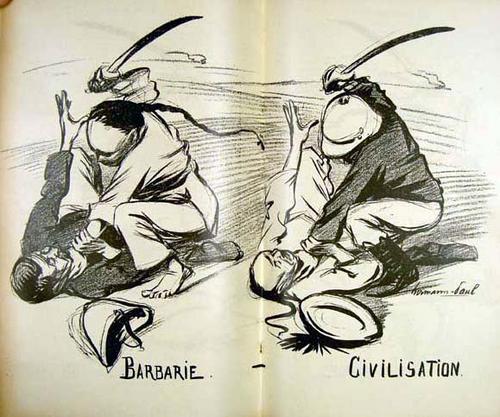To what degree are the Russian economy’s woes a consequence of international factors? Andrey Movchan argues the international sanctions or even the counter-sanctions Russia has levied against the EU and Turkey aren’t having much of an impact on the Russian economy, rather it’s the Russian government’s failed import substitution strategy that’s taking the toll.
Who becomes a terrorist? The profiles of the Brussels terrorists and the San Bernardino terrorists are dramatically different, for example. The bottom line is that there has not been any even mildly conclusive political science on the matter, prompting authorities to grasp for indicators that might allow identification in advance. This desire has led to the development of government checklists and grants by the U.S. Justice Department for “rapid assessment” tools that might help authorities identify extremists a priori, even though checklists will result in false positives more often than accurate detection.
Is there a significant potential for immunity for state agents of war crimes and crimes against humanity in Colombia, via the government-FARC agreement on a Special Jurisdiction for Peace? Human Rights Watch thinks the state-issued guidelines for the Special Jurisdiction for Peace will enable the transfer of many conflict-related cases from the state to the Special Jurisdiction itself, potentially allowing prosecution to be waived or permitting the granting of suspended sentences—including for “false positive cases” (Colombian Army brigades’ execution of civilians across the state).
Closer to home, an old civil-military debate has resurfaced: should the Chairman of the Joint Chiefs be a part of the operational chain-of-command that runs from the U.S. President through the Secretary of Defense to the Combatant Commanders? The Goldwater-Nichols Act of 1986 sought to make civilian control a central feature of the redesign effort, intentionally leaving the Chairman out of the chain. Doing so enables the Chairman to perform in an objective advisory role that would otherwise be confounded by the demands of operational necessity and subordination. Not a bad idea, it seems.
Speaking of debates, Secretary of the U.S. Treasury’s speech this past week might prompt another one—this time, over America’s use of economic sanctions. The speech outlined some basic parameters for U.S. use of economic sanctions, which includes multilateralism, credible commitments for both enforcement and relief, and the imperative to avoid the unintended but potentially disastrous effects of their over- or misuse.
In case you missed it, the fourth and final nuclear security summit (#NSS2016) took place in Washington this week. Here’s a quick graphic that illustrates the gains made since the summit’s inauguration in 2010—but the gains have been limited to nuclear material in civilian use, not under military control, which leaves many stockpiles unaddressed. Furthermore, the end of this summit potentially signifies the end of the process, leaving a patchwork of informal agreements. But the President of the United States is still hopeful that the world can be free of nuclear weapons in the future. Read Obama’s op-ed here, in which he lays out the progress the U.S. has made in moderating the risk of nuclear proliferation and use.
Finally, Rodney Hero, former APSA President, advocates for a greater role for political science in sorting out class inequality and racial diversity in the United States, in his article in Perspectives on Politics.







